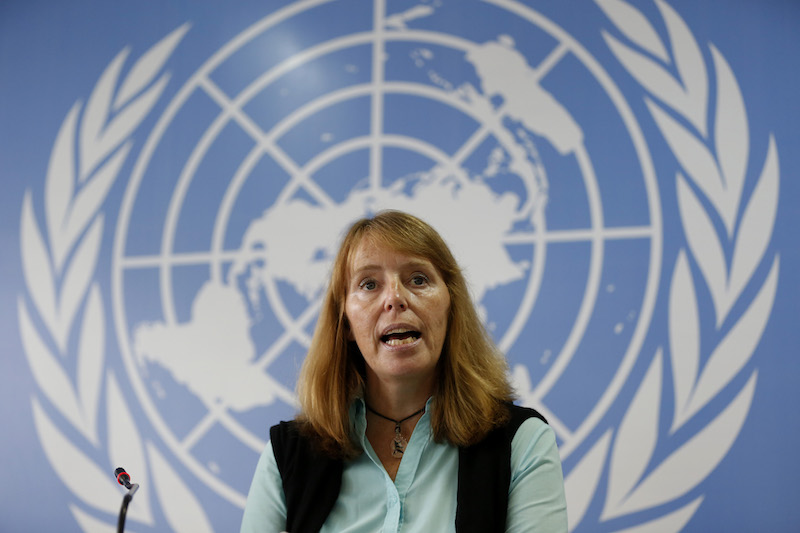Cambodia’s legal system is failing its youth, with juveniles being lumped into overcrowded prisons alongside adults, and child victims lacking proper protection from their perpetrators, the U.N.’s human rights envoy to Cambodia said Friday.
During her fourth trip to the country as the international body’s special rapporteur, Rhona Smith focused her attention on the needs of children and leveled a series of critiques on areas the government fell short of international standards.

The infamous Prey Speu “drop in center”—which has a reputation for rounding up vagrants, prostitutes and drug addicts and holding them indefinitely in poor conditions—is currently holding six children, she said during her remarks in Phnom Penh on Friday at the end of a 10-day mission.
While Prime Minister Hun Sen last year called for the center’s reform or closure, “there was no visible improvement in the facilities, only more overcrowding,” Ms. Smith said.
A visit to Correctional Center 2 in Phnom Penh, the country’s primary prison for women and juveniles, also revealed that some of the 38 girls detained there were being held in the same quarters as adults due to severe overcrowding, a violation of international rights standards, she said.
“I am also concerned at delays in accurately ascertaining ages of juveniles following arrest in order to determine whether they are below or above the minimum age of criminal responsibility,” she said.
Additionally, “children who suffer physical or psychological abuse within the community or family frequently have no means of seeking assistance or safety,” she said. All too often “the perpetrator is not brought to justice in accordance with the Law on the Prevention of Domestic Violence and the Protection of Victims.”
“There is no comprehensive network of government social workers. Ideally, there should be at least one per commune” to address these issues, she said.
The number of social workers in Cambodia is considered very low. The country’s sole social work bachelor’s degree started at the Royal University of Phnom Penh in 2008 graduates about 30 students annually, with few going on to government positions.
Even for those children who find support, they are often traumatized again by a court system unprepared for children, making them face their perpetrators or undergo inappropriate lines of questioning, according to a report released last year by Hagar International, an NGO that protects the rights of child victims in Cambodia’s courts.
In February of last year, global advocacy group Child Rights International Network ranked Cambodia 166 out of 197 countries for the effectiveness of its courts in protecting children.
Neither Justice Ministry spokesman Chin Malin nor Interior Ministry spokesman Khieu Sopheak could be reached for comment.



